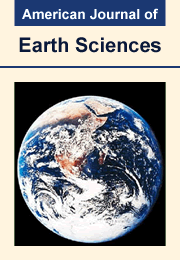1. Standard Papers
These are original articles reporting scientific research, data and dissemination. Standard research papers should not exceed 7000 words, although longer articles may be considered with permission from Editorial board. The word count is inclusive of all parts of the paper: summary, main text, acknowledgements, references, tables and figure legends.
2. Short Reports
These are reports of research findings, commentaries on topical issues or correspondence, of less than 1500 words, including abstracts, tables and legends.
3. Part or Whole Special Issues
Bringing together collections of papers on a particular theme, and usually edited by a guest editor.
4. Letters
Rapidly publishing short notices of significant original research.
5. Review
Reviews provide timely synthesis of topical themes to the journal. They should also offer new insights or perspectives to guide future research efforts.
Where there is clear justification, the Journal can implement a fast-track procedure for outstanding submissions of all types for publication, including but not limited to the above types.
Please download our
manuscript template and prepare your manuscript according to it.
Submitted manuscripts should be original piece of work. And it should not be under concurrent considerations to any other publishers. All new submissions should be submitted only electrically and all manuscripts should adhere to the style of the journal of Open Science.
1. Title
Concise and informative title, with no abbreviations.
All authors listed by first name, all initials and family name.
Institution and affiliations - list the name and full address of all institutions where the study described was carried out. List departmental affiliations of each author affiliated with that institution after each institutional address. Connect authors to departments using alphabetical superscripts. Corresponding author - name and e-mail address only of the author to whom communications, proofs and requests for reprints should be sent.
2. Main Manuscript Must Include
Abstract
A concise and factual abstract is required. The abstract should state briefly the purpose of the research, the principal results and major conclusions. An abstract is often presented separately from the article, so it must be able to stand alone. For this reason, References should be avoided, but if essential, then cite the author(s) and year(s). Also, non-standard or uncommon abbreviations should be avoided.
Keywords
3 - 8 keywords that accurately reflect the theme, discipline(s), profession, method(s) of the work. Country specific research may wish to include the Country as one of the keywords.
Introduction
State the objectives of the work and provide an adequate background, avoiding a detailed literature survey or a summary of the results.
Material and Methods
Provide sufficient detail to allow the work to be reproduced. Methods already published should be indicated by a reference: only relevant modifications should be described.
Theory / Calculation
A Theory section should extend, not repeat, the background to the article already dealt with in the Introduction and lay the foundation for further work. In contrast, a Calculation section represents a practical development from a theoretical basis.
Results
Results should be clear and concise.
Discussion
This should explore the significance of the results of the work, not repeat them. A combined Results and Discussion section is often appropriate. Avoid extensive citations and discussion of published literature.
Conclusions
The main conclusions of the study may be presented in a short Conclusions section, which may stand alone or form a subsection of a Discussion or Results and Discussion section.
Acknowledgements
Grants, financial support, technical and other assistance such as equipement and drugs are acknowledged. If there was no financial assistance with the project, this must be clearly stated.
References
Choose one of the main citation styles.
Tables and Figures
Submitted together with the main text manuscript.









